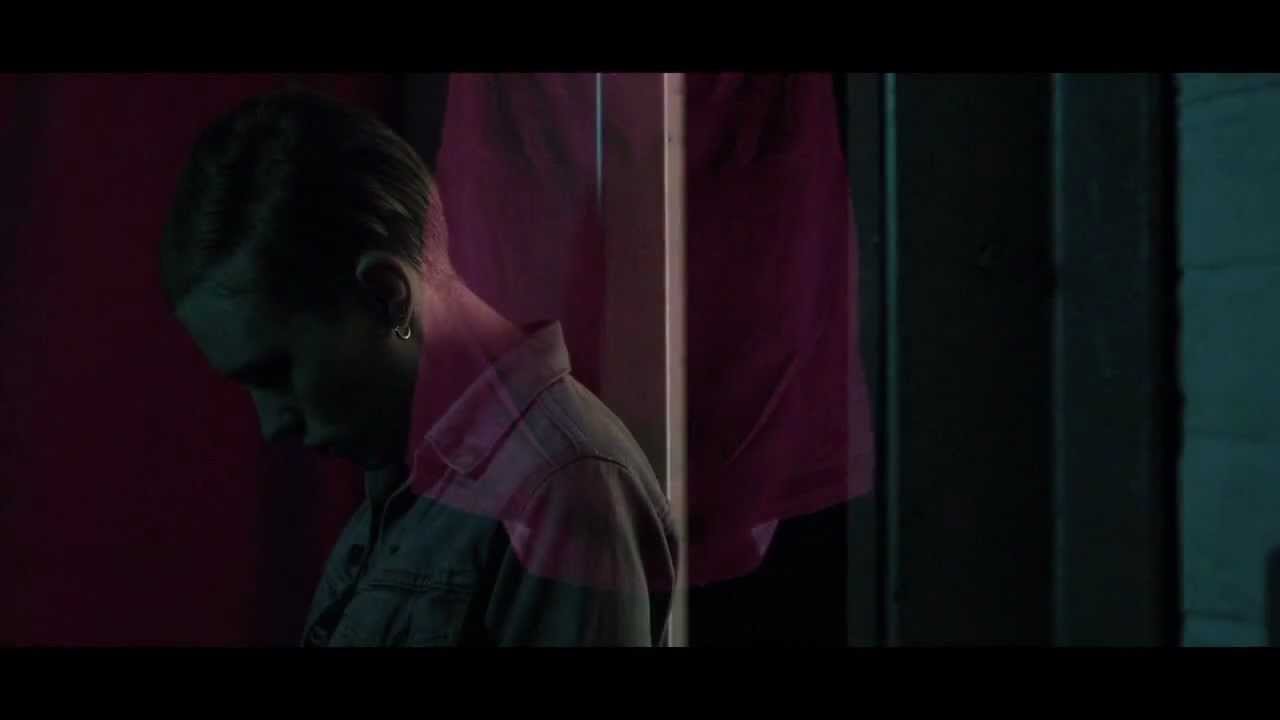In a café in London’s Shoreditch, Trailer Trash Tracys are poring over a piece of paper in front of them. "You see, Trailer Trash Tracys right. Take the three T’s – that’s the three crosses on Calvary". Guitarist Jimmy Lee circles the second and third letters in each word of the band’s name with a biro: "Then three "ra"s – that’s a trinity of the sun God Ra. I’ll write that down for you…"
The beginning of this elaborate tale is the most recent in a series of lies spun to journalists asking about the origin of the band’s name. There was the group of Soviet ballerinas who were forced to perform striptease to Stalin and the Politburo – nicknamed Trailer Trash Tracys. Or the even less credible transvestite aborigines who were forced to live in caravans.
"Ah, you’ve done your homework," they sigh, when I suggest that if they’re going to give me another fib I at least want a decent one. "We’ve been going all around Europe doing interviews, and you look at the interviewer thinking ‘are they actually buying this?’ and they just take it all down."
"There has to be something people hate about you," says singer Suzanne Aztoria, "so if it’s just the band-name, that’s fine by us."
It’s certainly not detracted attention from the East London based four piece, initially conceived after Suzanne and Jimmy met in another band who subsequently disbanded. Hooking up with Adam Jaffrey and Dayo James, they continued to play together and put a couple of tracks online, ‘Wish You Were Red’ and ‘Candy Girl’. The latter’s saccharine melody and sinister bass lines, which bore more of a passing resemblance to Angelo Badalamenti’s Twin Peaks score, won them a string of gigs and a deal with Domino imprint Double Six.
Two years later and slicker recordings of those early demos make it onto their debut Ester alongside more recent tracks, such as the rasping, Phil Spector-indebted ‘Engelhart’s Arizona’ and ‘Starlatine’. Sure, they’re not the only band on the block mixing woozy atmospherics with ethereal vocals, but Ester is a glorious haze of dream-pop, enmeshing Cocteau Twins ambience, the dragging depths of This Mortal Coil, and the breathy roar of My Bloody Valentine.
The Quietus caught up with Jimmy Lee and Suzanne Aztoria to talk about the curse of lo-fi, their love of Abba and why Paul MacCartney loves their name.
While there’s a moodiness to the album, it’s also clearly pop-inspired. Was the dream-pop aesthetic something you were going for?
Jimmy Lee: Fundamentally yes, for this record anyway. It was the melodious ideas of pop, having a structured melody, that really drew us. Around that, we tried to play around. We’ve not tried to tie ourselves to a particular genre, but for this record we tried to stick to pop melodies – Blondie, ABBA, Phil Spector, or the Beatles – we took them as influences. Pop music often gives the connotation of fluffiness and light. But the way Suzanne sings gives a kind of sad tone.
Suzanne Aztoria: And that meant everything around it had to be a bit more weird.
JL: Yeah, at the same time we tuned everything down to a low key to give the illusion that it’s not pop, like the Velvet Underground did. It brings a kind of darkness. We just wanted to drag the music in the dirt a bit. We found that gave us more of a connection, an emotion with the music, a sadness.
So when you started, did you feel you belonged in the lo-fi camp? Was there a deliberate element of nostalgia in your music?
SA: No, for us it was the opposite. We didn’t know what we were doing, or how to record. We had really crap equipment, so that was just how it sounded.
JL: We didn’t even know what lo-fi was. We weren’t reading blogs or magazines, but when blogs and magazines started talking about the single and grouping us with other bands, we thought, ‘Wow. The way we’ve been recording is actually a cool thing. But they’re doing it intentionally’.
I read your instruments were tuned to the Solfeggio scale. What is that?
JL: I was reading a lot of books about conceptual music, and I read something about how certain frequencies – Solfeggio frequencies – apparently have properties where they can heal your DNA. It’s probably bullshit, but we thought why not give it a try? There is evidence that these frequencies can change the molecular structure of water, so the fact that humans are made mostly of water, it must have some effect on your body. We did it as a joke on some of the tracks…
When I Googled it, all I got was the Sound of Music…
JL: Yeah, we didn’t know about that though. Apparently the Sound of Music was in the Solfeggio scale, but the idea is that it’s the harmonics, rather than the scale, which have the properties.
Also, you used Sufi poetry as inspiration for your lyrics. Where did that come from?
JL: I have a friend who’s a monk and he was debating whether to be a monk or not. But in the end, the sexual urge got the better of him. Anyway, he introduced me to the poetry of Rumi. I liked it, it’s very simple. It’s very weird, it’s almost cynical about love, but still thinks it’s the most powerful thing in the world. It’s cynical about human nature, but at the same time thinks we are capable of being beyond ourselves, via a higher state. Unfortunately, a lot of modern new-age stuff has kind of pissed all over traditional Eastern European philosophy…
So how have you used it in your lyrics?
SA: Well, at the beginning, we tried to write lyrics on our own and found it really difficult. It was just good to have somewhere to pick words from. ‘Thief of Love’ and ‘Engelhart’s Arizona’…they’re inspired mostly by that concept.
But you can’t actually determine the lyrics in a lot of your songs…
SA: Yeah, I think I do sing like that deliberately, so as not to make out the words too much. It’s just natural to me.
Are you shy about your own lyrics?
SA: On some of our songs definitely, they were quite naïve. In the beginning we didn’t really know what we were doing, But our later songs are more thought out, I think. Going forward, we’d like to develop our writing more.
JL: I think reading poetry made us feel more confident. We know what are bad lyrics, and we know when we’ve got a great line. But lyrics are always the last thing we think about. It’s always a pain. We do the melody first and everything else comes after that. Hopefully, we’ll find a middle ground in the future.
So David Lynch feels like a clear point of reference for the album. Are you big fans of his?
SA: We watch a lot of cinema, but not so much Lynch actually. I liked Mulholland Drive. We liked the idea that the album could’ve been the soundtrack to a film that was never made.
JL: The David Lynch association is the bass line of Candy Girl… At the time we did it, we wanted a very sparse, bass-led introduction. But then we realised it sounded a bit like David Lynch’s, err…
Twin Peaks?
JL: Yeah, Twin Peaks. Bearing in mind this was in our bedroom, we put it up on MySpace, and thought nobody’s going to notice, or pay much attention to it. But when the record came out, everyone picked up on it. It was never a conscious decision to make it sound like David Lynch, it was more a conceptual idea of being sparse and minimal with the bass, rather than plagiarising. But it’s been a good thing for us. Part of pop music is about association with the past, so it gave a good hook for people to associate with us.
I can hear other elements of Lynch soundtracks on the album too, like This Mortal Coil. Were there certain bands you were listening to?
SA: Well, we made the album over such a long period of time, that there were all these different bands influenced us at different times. When we were writing Candy Girl, I’d just discovered the Cocteau Twins…
JL: Yeah, we were into Cocteau Twins, My Bloody Valentine. All that stuff was influential to us. We were really into dub and reggae and Trojan records stuff. We listen to a lot of Suicide records. We liked the reverb and echoes. So we put those ideas into our music. As the record went on, I think we were inspired by other bands – Sun Ra, Burt Bacharach, ABBA. When you talk about the perfect melody, ABBA totally nailed it. If you need to know the basics of pop music, just listen to the Beatles and ABBA, and that’s all you need. Combine that with something more esoteric and weird, and you could have a winning record. Simple as that.
Is there any meaning behind the title Ester ?
SA: It felt the album was our child, so we always wanted a name that would make it its own entity. We wanted a name. And there was this Swedish short film I liked called Ester too – it has some beautiful shots of a woman moving around underwater. It was kind of like a metaphor for her escaping social sterotypes of her being overweight. Underwater she escapes from what society thinks of her. We liked that idea of escapism – we feel like our music is escapism too. Creating our own world. If you spend a lot of time doing music, you live in this bubble of it.



